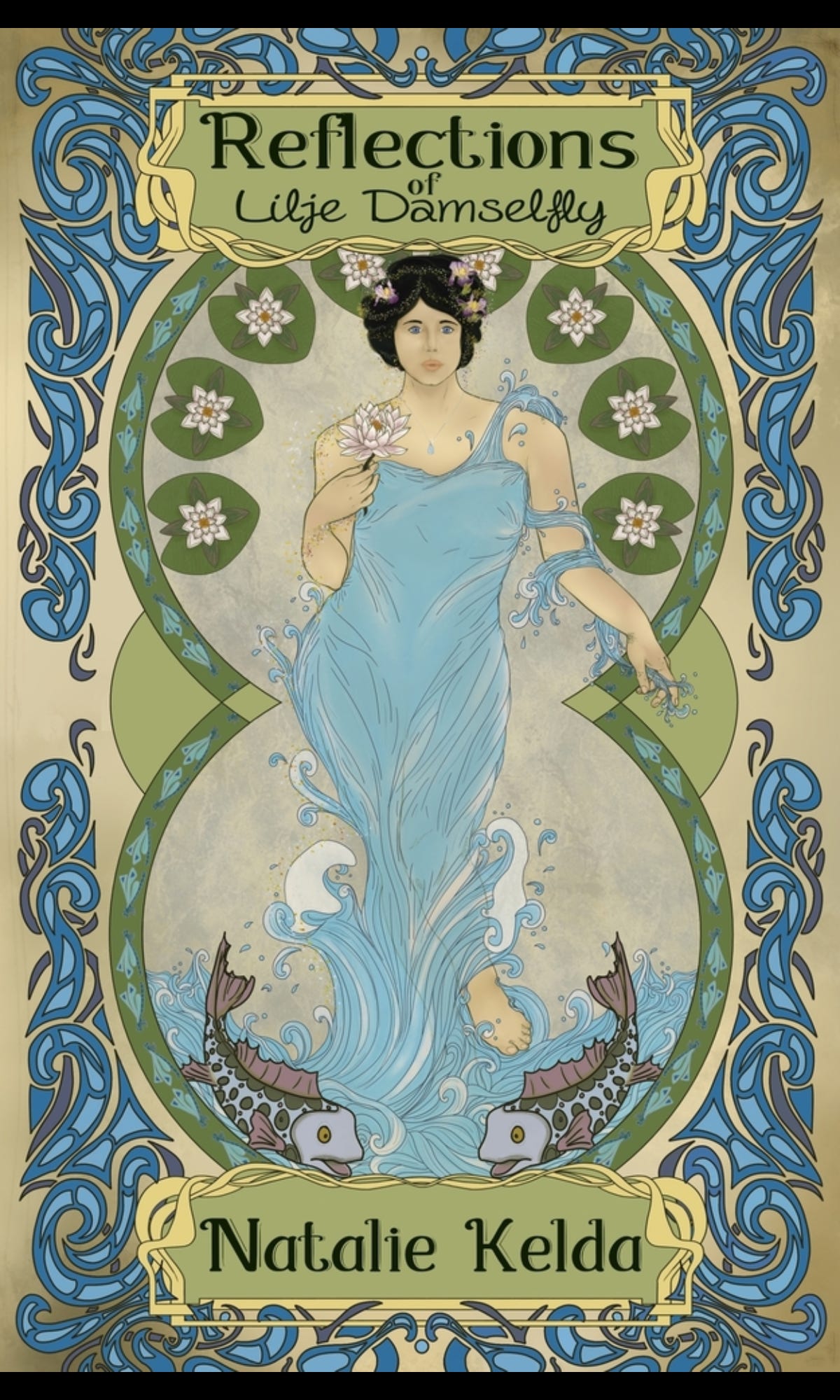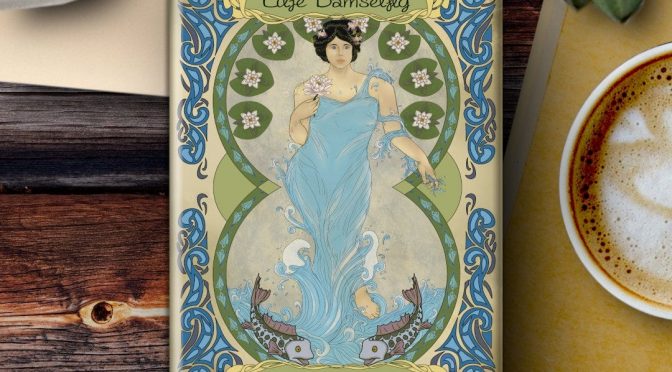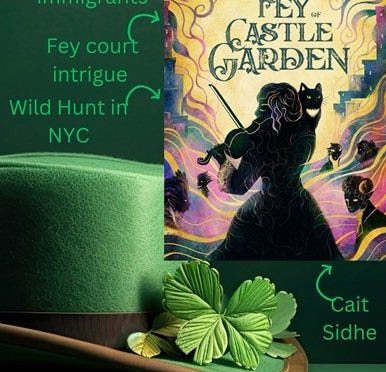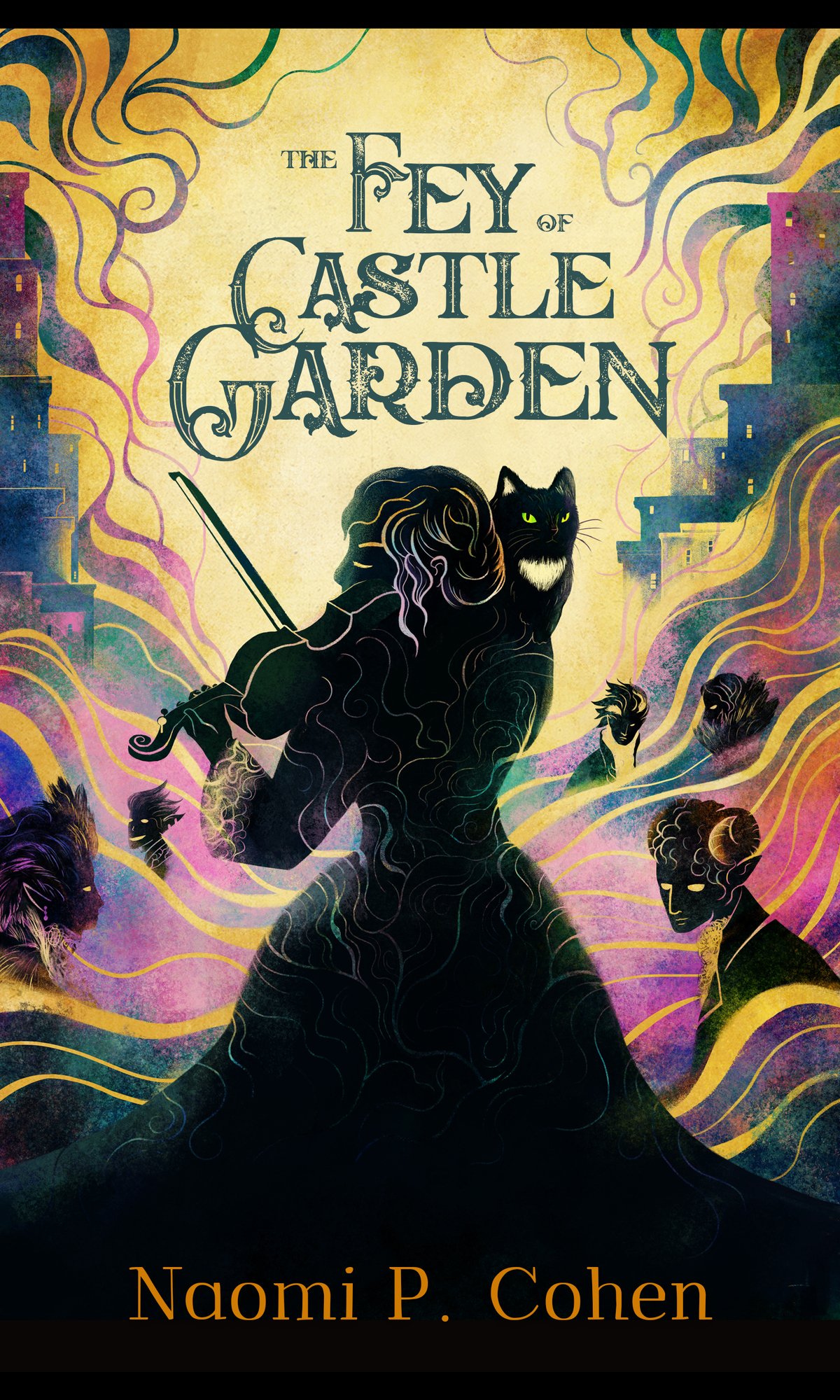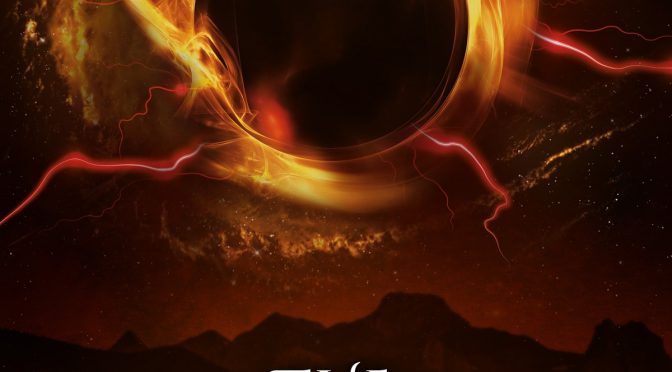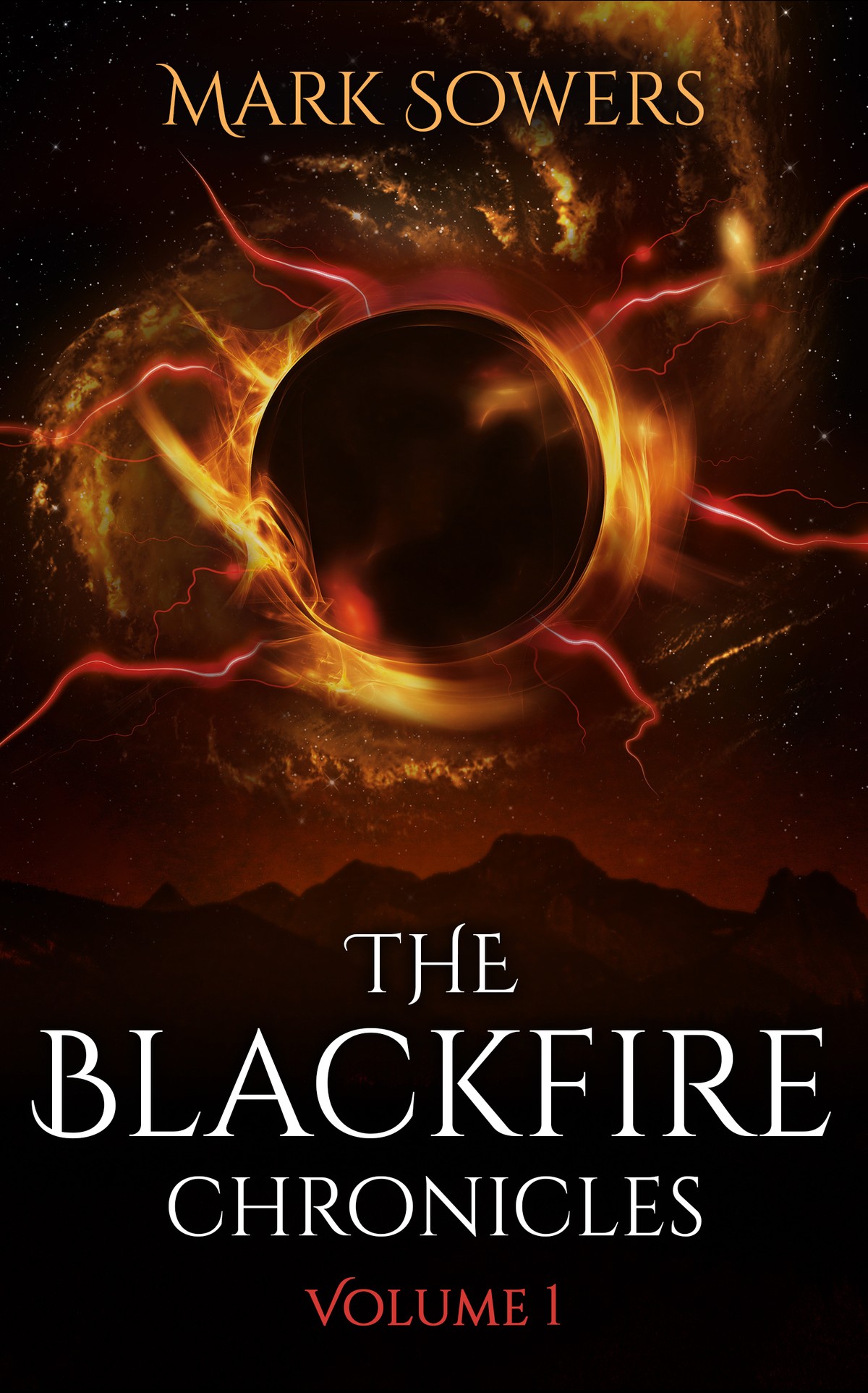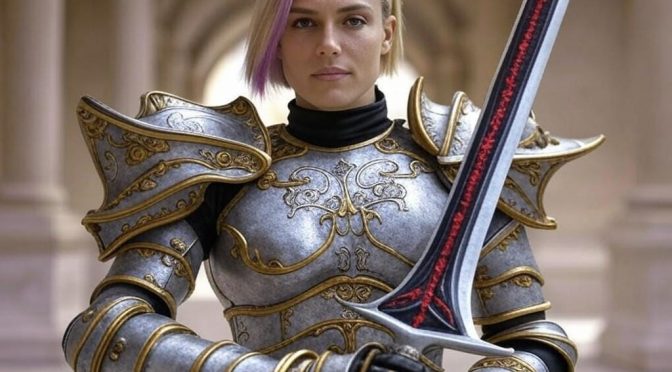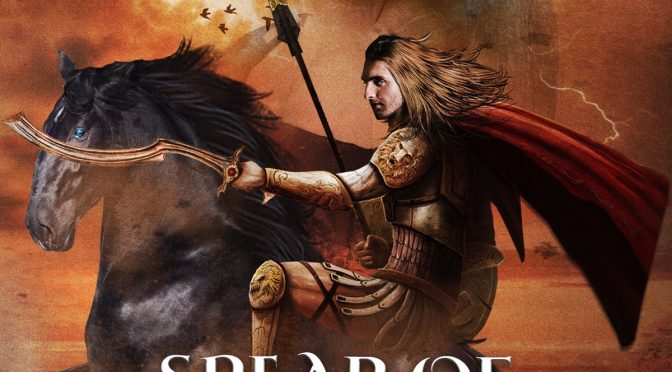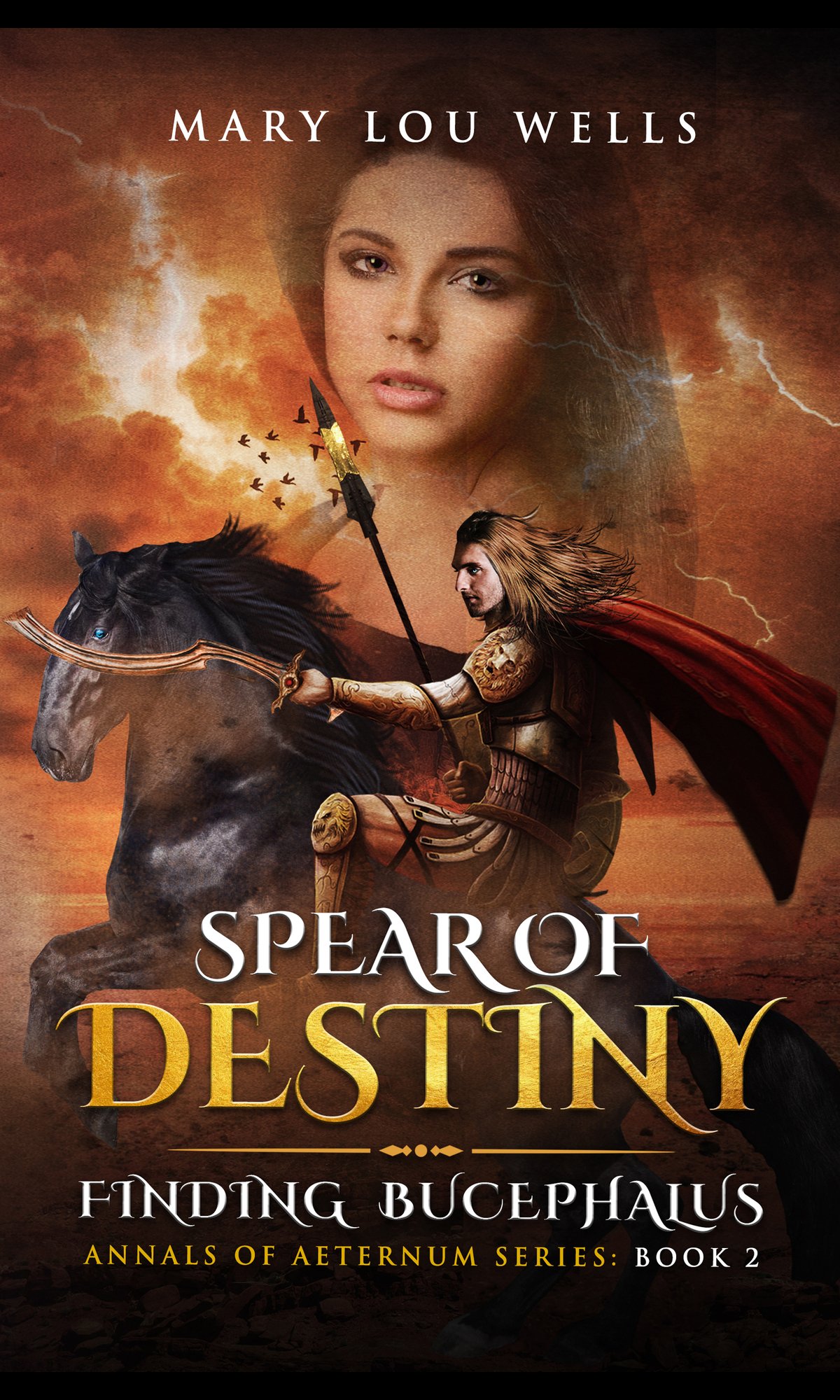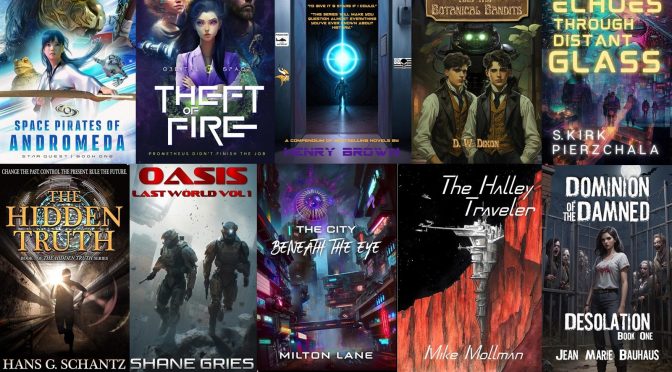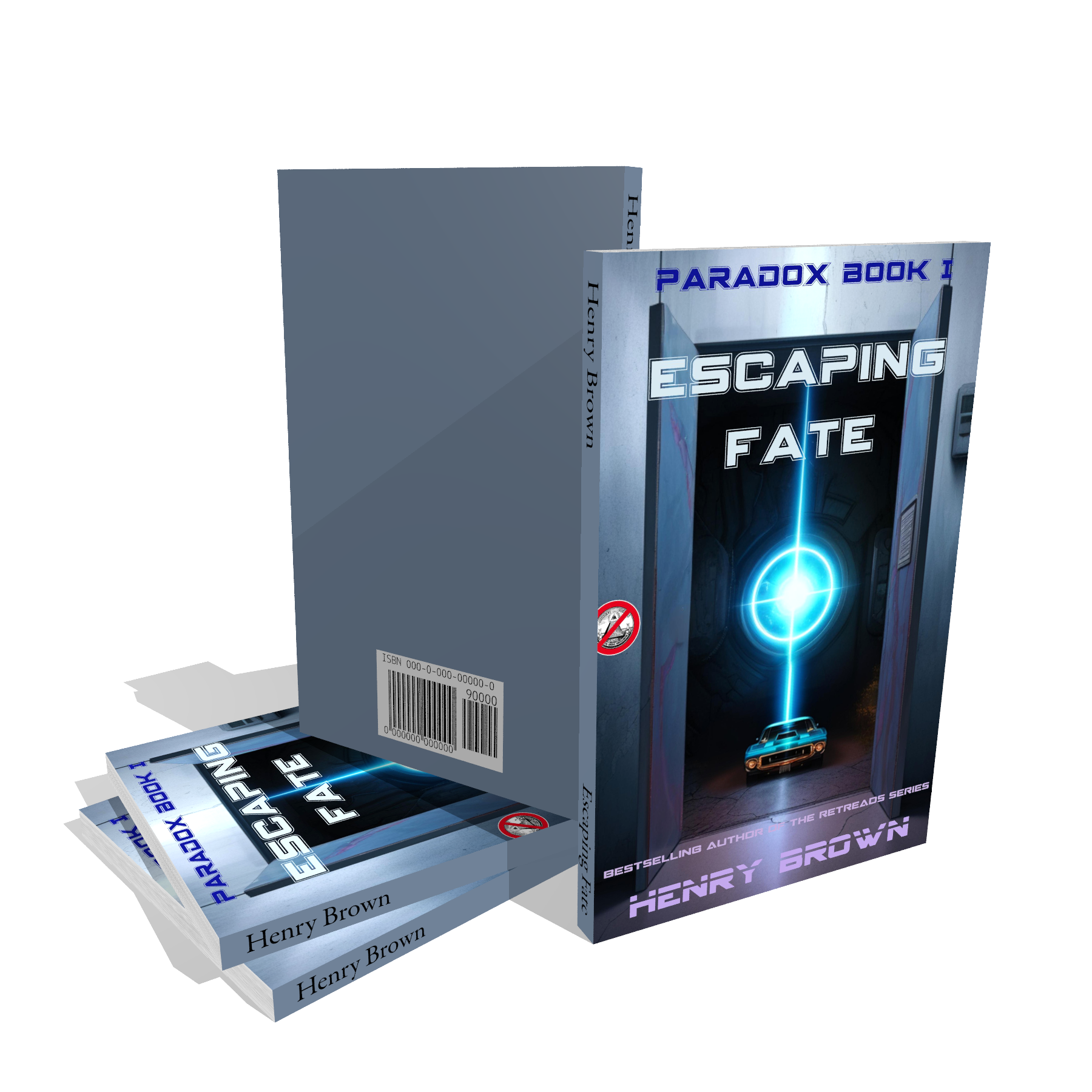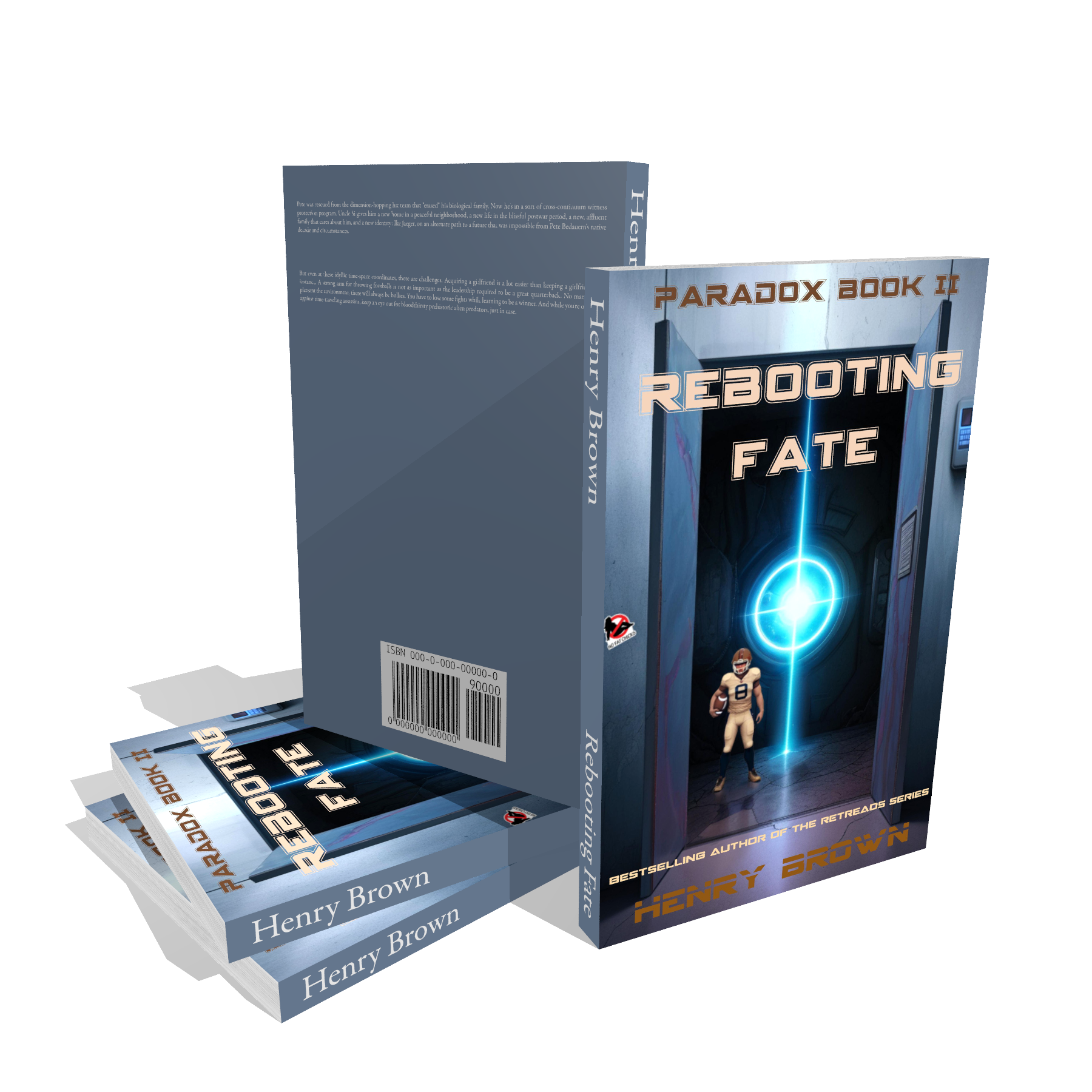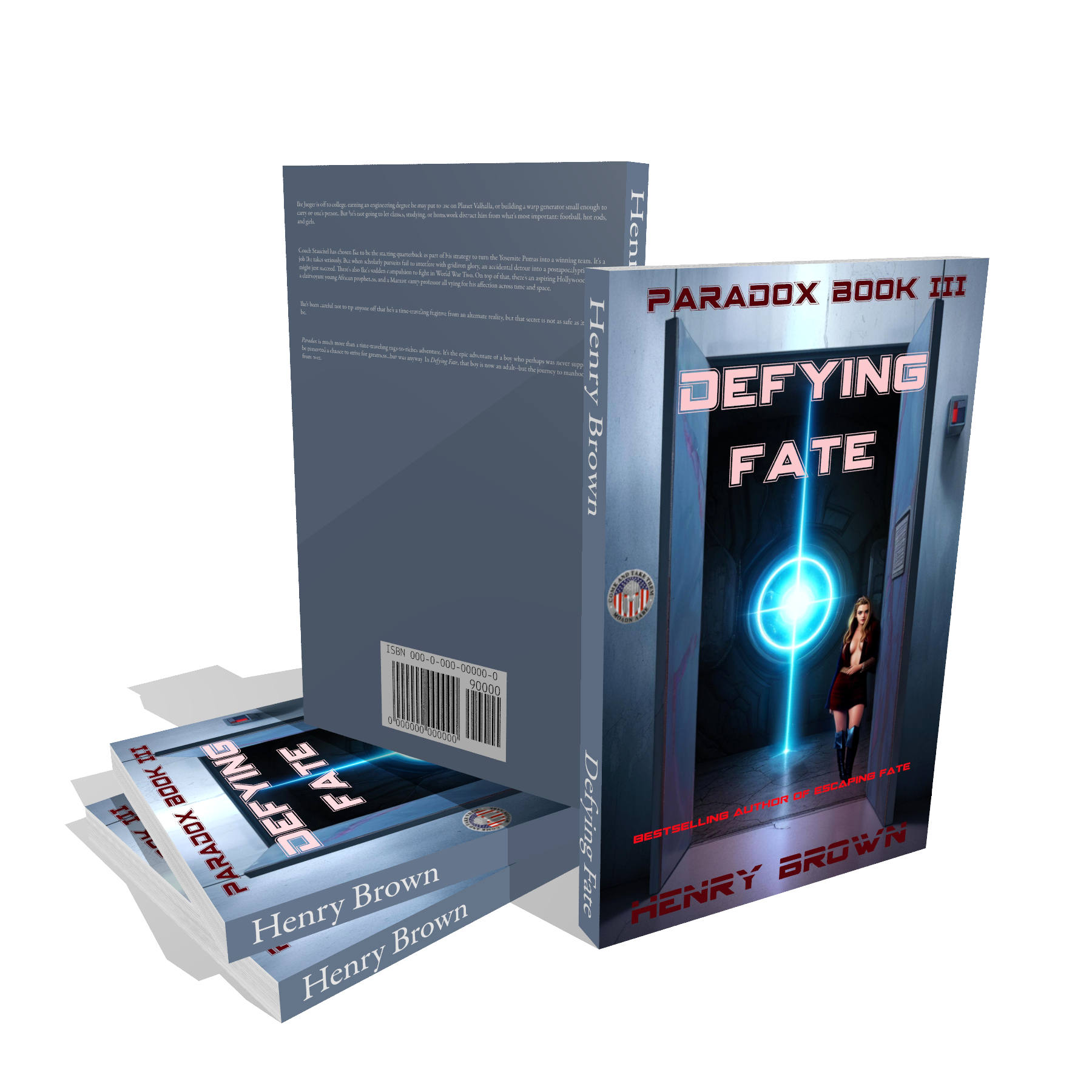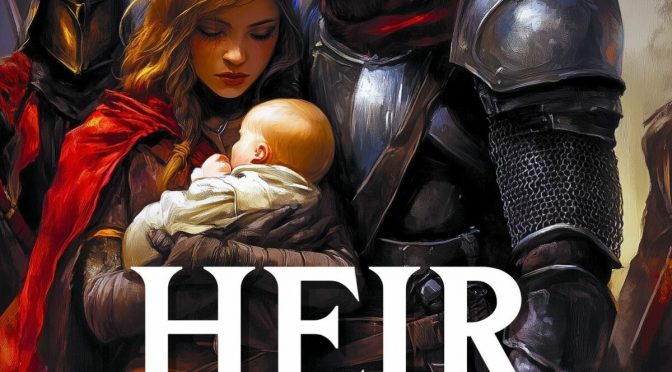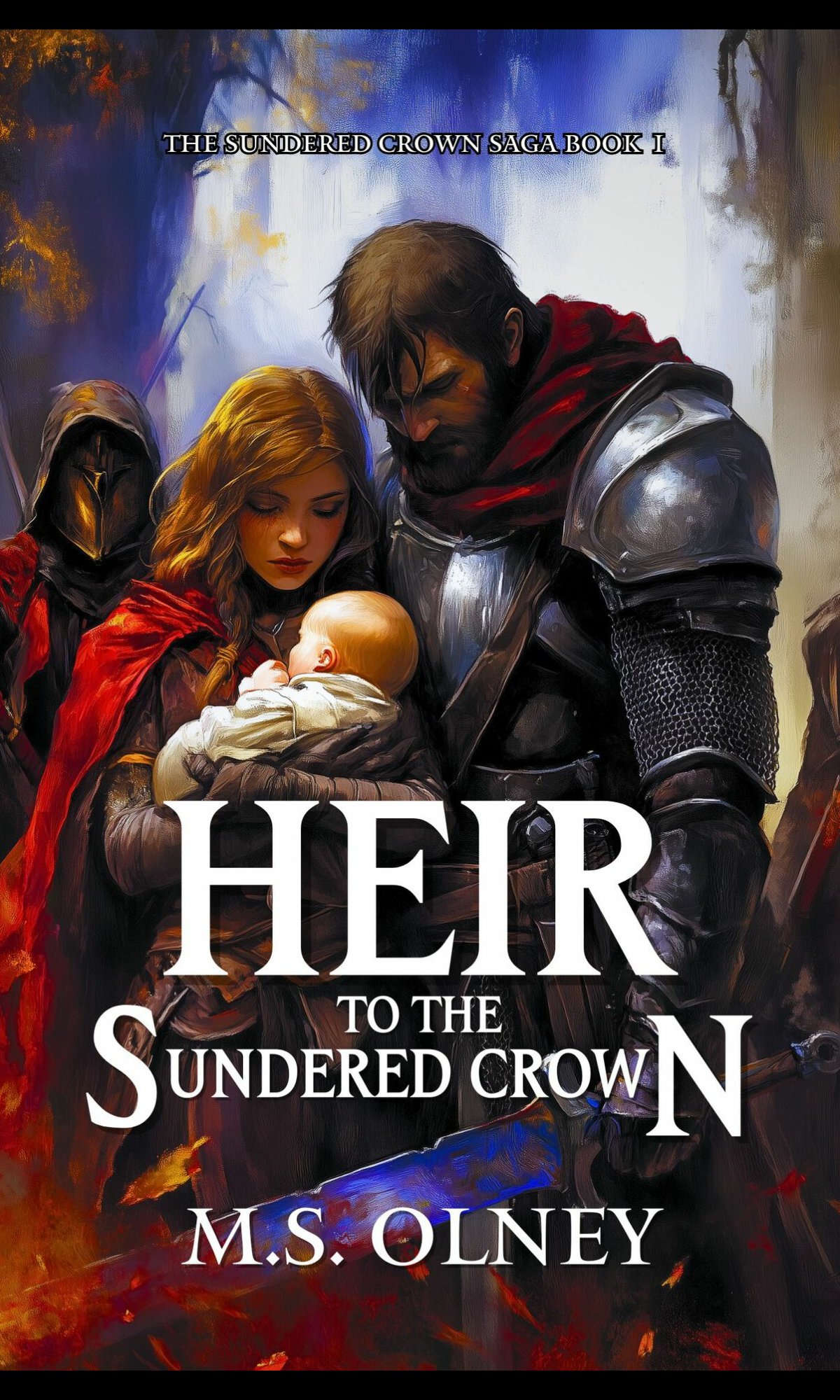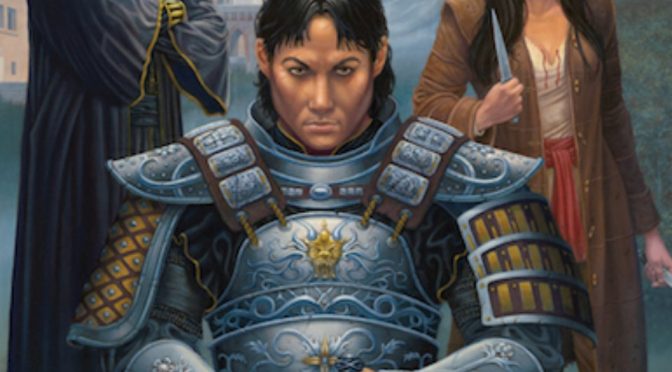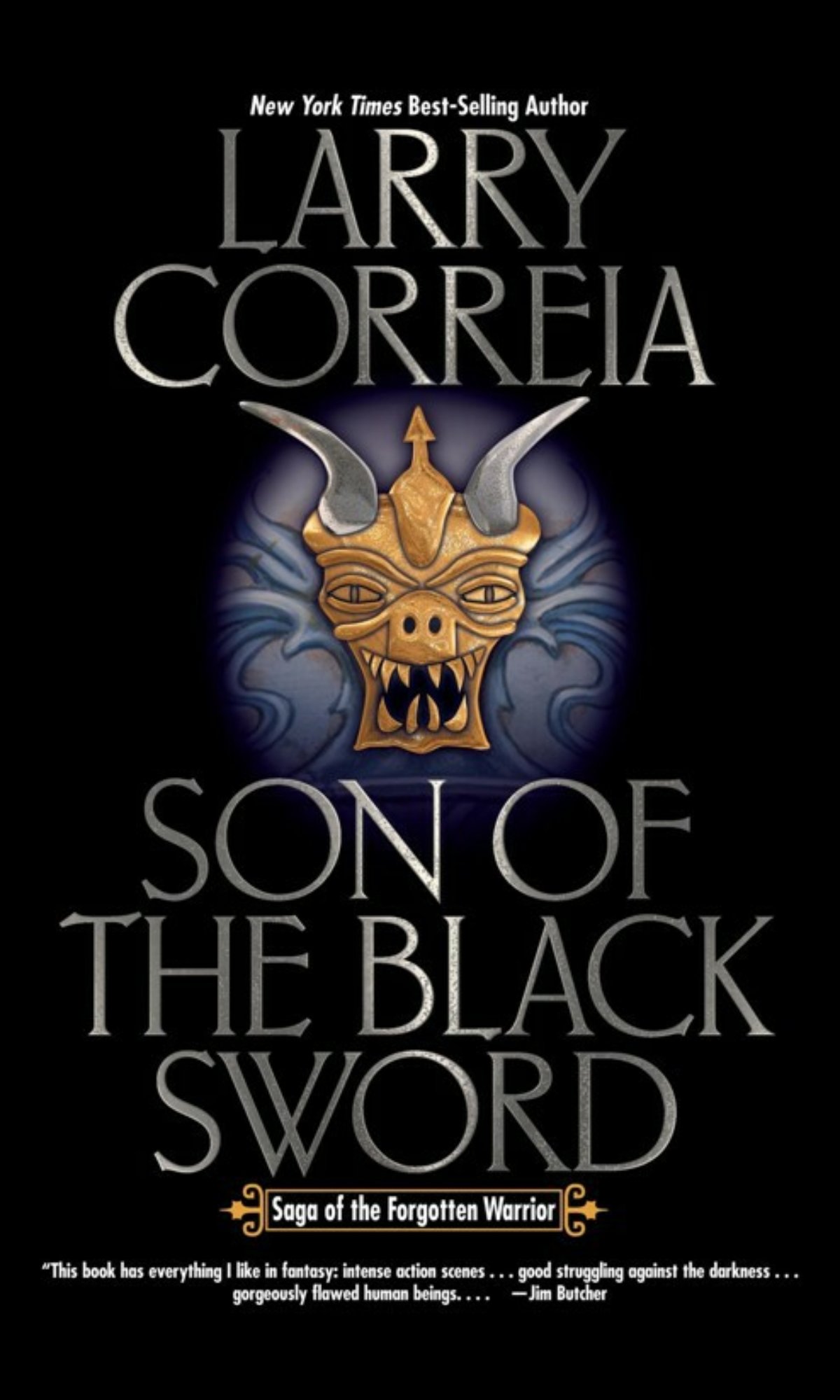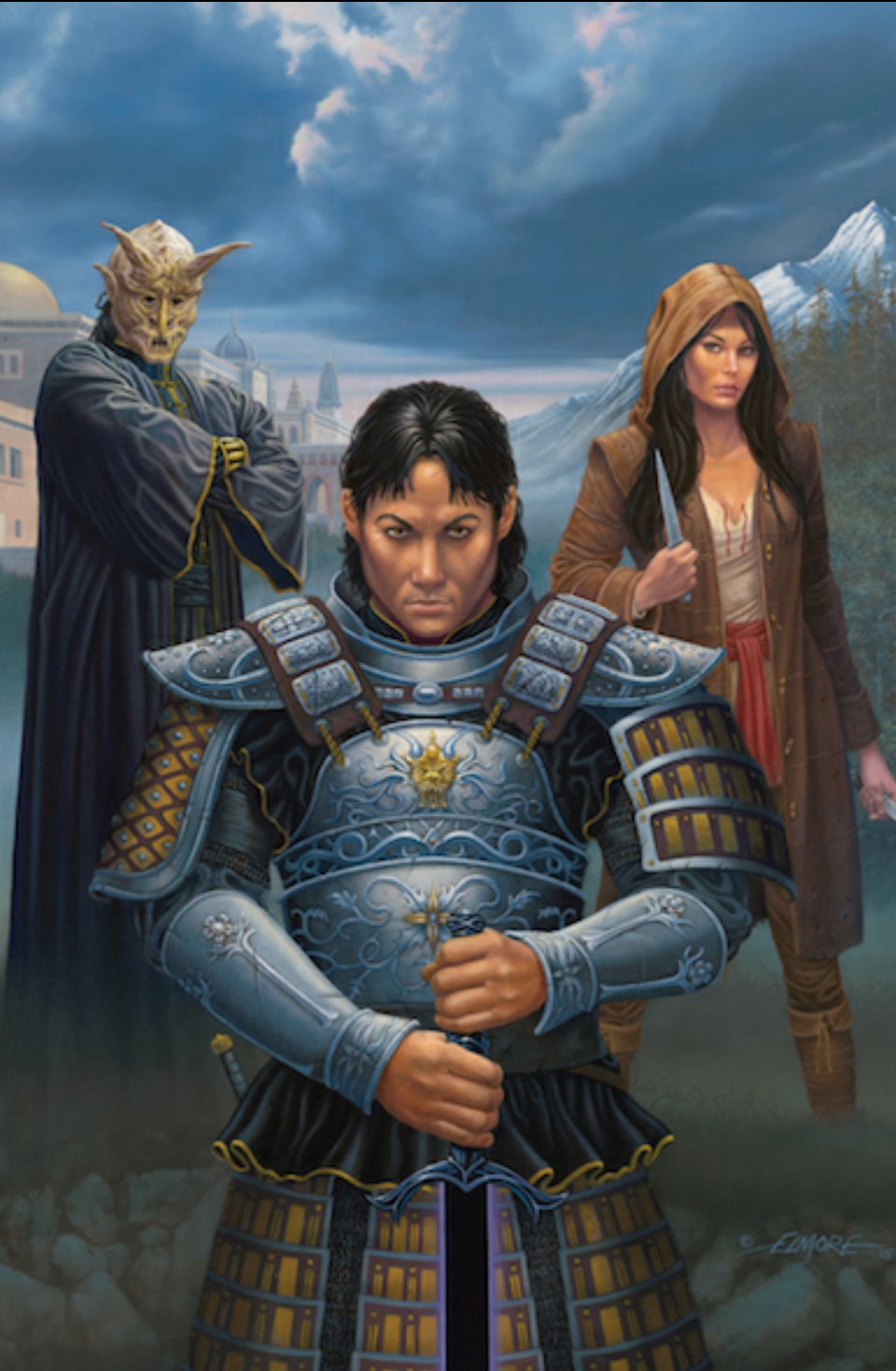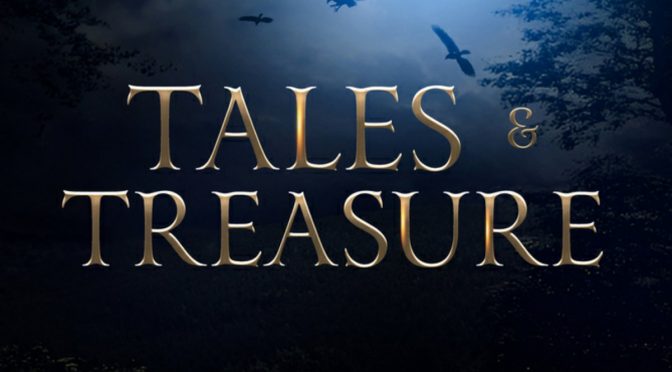Editor’s Note: VP has a treat for you today. The Infamous Gio has been working on some fiction of his own, and is sharing one of the companion pieces to the fantasy novel he is involved with. This story is a lighthearted, amusing departure, stylistically, from the other work in the developing Agogex canon.
Even though SAFREN: Alpha Agogex belongs to the same fantasy universe written under the pseudonym of Abigail Lakewood, the direction Gio decided to take this concept was quite different from the other stories.
Here, the narrator and the main character are one and the same. However, Safren the Narrator, unlike Safren the MC, is not bound by space, time, culture, or language. This is part of the creative liberty Gio took in order to create a narrative of fantasy filled with comedic undertones.
This is NOT chick lit, but it is fantasy/pulp ‘disguised’ as such. We might say, at best, that it has chick lit tropes in a fantasy setting. Safren does not represent a ‘girl boss’ role model for ambitious, independent women. In fact, Safren was originally conceived as a villain for the story Scars: An INFAMOUS Legend, but there was something special about her demeanor, and Gio decided she should have her own adventures. However, in order to make this villain compelling enough on her own, he had to immerse her in a world where comedy and satire could coexist within the fantasy setting.
Some may ask why Safren speaks differently as the narrator than as the MC. When you read ‘Safren the narrator’ you’re reading her thoughts, you’re reading her soul. She is not actually speaking to another character or doing an interview.
A series of short stories/episodes is being created. Each can be enjoyed as a stand-alone tale, even knowing little to nothing about Agogex, or Carriala, or the New National Religious Doctrine.
Some of the dialogue and character interactions, you might notice, read kinda’ like a superhero comic book, rather than a classic fantasy novel (particularly when it comes to the villains). That, again, is intentional, because of the overall goal to create a more contemporary, pop culture icon.
Hope you enjoy,
Hank.
SAFREN
Alpha Agogex
Introduction
“Agogé Safren! You inspire, yes? Your momma and papa proud of you, yes?” Agogex head trainer Mirix takes her helmet and gloves off while the other Agogex trainers push the other young girls aside to make room until only the head trainer and Safren are left facing each other. Murmurs can be heard all around.
“You strong, you fast, you Agogé!” Mirix says, inviting Safren to attack her.
Yes, that was me. I was 16 years old at the time, and on that day I received a major whooping from our head trainer Mirix for simply being the best in my group and for squatting more weight than probably even she herself was able to squat at her ripe age of… well, who knows? Old.
I think that was a 28-stone boulder I was hoisting (close to 400 pounds). But I can’t quite recall. I’m not sure any 16-year-old Agogex ever lifted that boulder before, let alone squat it for reps. In hindsight, I wouldn’t be surprised if the beating I received was not so much a lesson in humility as rather an outer manifestation of Mirix’s brittle ego, unable to deal with the fact that an Agogex of my age was that ‘stupid strong’.
But that seems to be the story of my life after all: the more I excelled the more backlash and retaliation I seemed to receive. Our enemies always tried to kill me on the battleground. My fellow Agogex always hoped I would get killed on the battleground… or worse. If you’ve never been to the Eastern front lines fighting the barbaric hordes, you should know the only thing those cavemen love more than killing an Agogex is to capture one alive. I’ll let you figure out the rest.
But I truly believe jealousy from other lesser specimens was indeed my worst enemy in life, not foreign invaders. When you are the strongest, fastest, and brightest of the bunch, you don’t make many friends, but you sure make a whole lot of enemies and haters.
My name is Agogex Safren, daughter of the legendary Carrialan warrior Mouslenix Dottir. I come from a family of military leaders going back generations—to the times before the last Holy War, when giants still roamed among us. I was born to lead and bred to conquer… and to kill.
I am the ALPHA AGOGEX.
Trouble in Komirn
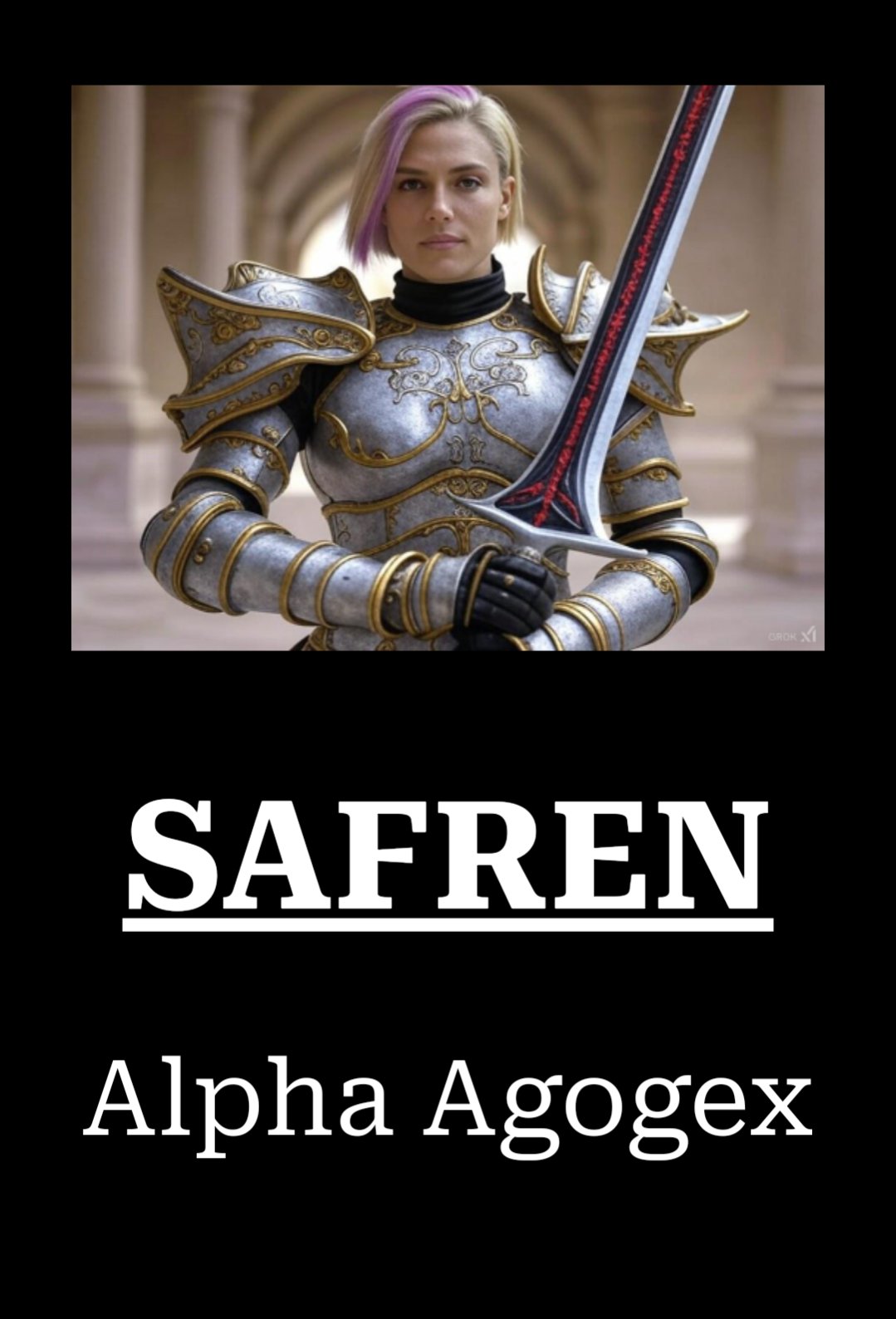
1
“Are you getting along with the others?”
That would be Father asking me that question. He is the legendary Carrialan warrior Mouslenix Dottir of the Dottir dynasty. He has a great reputation for leading military campaigns in the Eastern borders of Carriala against the barbaric invaders. His heroic feats are known throughout the country, and one time he slew an entire platoon of 50 barbarians single-handedly after all other Carrialan soldiers had been slaughtered.
“Agogé fear me. Those who not fear me just hate me,” I answer.
“That is quite normal, my dear daughter, when you are better than the rest. I had to go through a similar experience myself, climbing up the ranks of the Carrialan military hierarchy. Always some private talking behind my back out of spite and jealousy.
Don’t let it get to you, Safren darling, as they are only admitting to their inferiority. They realize they will always be second-best, and it gnaws at their souls.”
Gotta love Dad. He has always been so supportive of my military career in the Agogex caste. He and Mom always told me the story of how elated they were to find out their baby had been selected by the gods to be Agogex. Tears of joy ran for days, and my Mom picked the name Safren from the legendary she-giant who roamed the lands before all giants disappeared.
Oh, you didn’t know? I descend from Safren the Giant herself from Mother’s side! Of course, neither I nor Mom are 12-feet tall due to the mixing of blood throughout many generations, but there is definitely giant DNA in us. Both my Mom and I are naturally much larger and stronger than the average woman, even without dark potions. And just look at my freakin’ legs! They’re huge! Those, my friends, are definitely giant legs! I can never find trousers that fit me properly because of those ‘tree trunks’, and wherever I go, people always stare at them as if they were actually staring at a giant from the old days.
“I angry when Agogé trainers want to chastise me for being better than others.” I said to my father. “They not reward me for doing better, they punish.”
“Daughter, let me explain something to you. People like me and you will never have an easy life. You have giant blood from your mother and Dottir warrior blood from me. Add whatever enhancing concoxions the Patrarchons are giving you in the mix, and you get an unstoppable force of nature that all fear, including the highest ranked Agogex.
Do not let that discourage you, because YOU have control, not them.” As he says those words he reaches out and holds my chin with his thumb and index fingers, lifting up my head and looking me straight into my eyes. “Look at you, Safren. You have perfect skin complexion, perfect hair, a bone structure that would be the envy of the gods themselves. In fact, you are like a god made flesh in all regards. You are stronger, faster, wiser, and braver than any man, woman, or Agogex that ever lived. You were meant to succeed where everybody else would fail. It might seem a curse to you right now, but it is not. Trust the words I am saying to you!”
Wow, when dad wants to give me an epic pep talk he can really outdo himself, can’t he! The truth is, he knows exactly how things go in camp. He is in close contact with the Agogex captains and trainers due to his ranking and reputation. They probably explained to him that the stronger Agogex are also the ones who have their lives made harder because, well, we simply operate at another level, I guess. But an Agogex who descends from both giants and Dottir warriors must be something new even for them, and I do feel that sometimes they come down a little too hard on me perhaps.
Oh, here is Mother, fashionably late as always. “Oh, hello, baby Safren, MWAH!” She hugs me and gives me a most wet and sloppy kiss, typical of Mom. “That odor, Safren baby! Will I ever get used to it? It is so bold!”
At the age of 42 Mother looks healthier and stronger than most women 10 years younger. The type of beauty that doesn’t exude the frailty of a damsel in distress, but rather the power of a warrior queen as described in the fairy tales read to children. Do not let her beautiful gown deceive you either, she is well taught in the arts of combat–I mean, look who she’s married to–and carries a weapon with her at all times. She loves to challenge herself physically and she follows a very healthy diet of mostly protein and vegetables. I feel sorry for any man (or woman) whose idea of trying to rob her would cross their mind, for they’d be in for a big surprise, and not the good kind either.
“Dinner should be served soon. Let me run down to the kitchen to speak with our cooks and our maids to get everything set up,” she informs with an excited look on her face.
If you were wondering, yes, my parents are financially very well off thanks to Father’s military career and his Dottir dynasty heritage. Mom, though not as wealthy initially, was always well provided for by her parents, their giant lineage always making them favorite guests of the upper social stratum of Carriala.
Food! Do you think you can eat or know someone who can put away some major food? You ain’t seen nothing until you’ve eaten at the Dottirs. I’m sure you’re aware of the immense amounts of food Agogex need to eat due to their fast metabolism and higher muscle mass. Well I’m twice the size of the average Agogex; I’m a ‘big girl’ and I need a lot of food, and I mean A LOT! Fortunately, though at a smaller scale, both of my parents are big eaters so I never have to worry whenever we have dinner together, such as is the case tonight.
I feel bad for those Agogex in camp whose families don’t live in the capital like my folks. They get visitations sure, but they must feel homesick at times.
“Making lots of friends in camp, luv?” Mother asks.
“Always same question, always same answer, Momma. Agogé fear me. Too big, too strong, too… everything.” And as I say that I take another bite of the roast that the maids have been serving. “Hmm, hmm, hmm! Oh Momma this is good! No, no good. De-li-cious!”
No leftovers. Big surprise. But I’m still hungry, so I run back to the kitchen. “Baby, there is some ham and cold meats and vegetables in the pantry!” Yells Mom from the dining area as I already work to fill up a fresh platter with assorted cold meats and vegetables in the kitchen area. The maids and cooks have a weird look on their faces. Fear? Disgust? Not sure, nor do I care too much. But I notice some of them are looking too much on the frail side. “Momma, you feeding servants? Some look too thin, even for puny humans.” I yell so she can hear me.
“We pay them well, and they have assigned times for brunch and lunch during the day,” Mother yells back.
The servants keep looking at each other and I feel like they are hiding something. I grab one of the man servants by the collar. “Tell me what you hiding, goat!” I demand of him. I know, I know, I don’t have much finesse, but it always works for me!
“Tell me why you look so thin! You no eat? You ill?”
“Please Agogex Safren, let Sconard go! I will tell you everything but please do not hurt him!” One of the maids shouts.
“Sconard? This your male goat, girl?” I ask her. Hey do not get me started on my Agogex speech! I will talk more about that later, but right now I’ve got a mystery to solve!
Meanwhile, both of my parents approach as they hear the commotion in the kitchen.
“Yes, Sconard is my male g… my fiance, I mean, and I do not want to see any harm befall him. My name is Aramiz”
“Speak then, Aramiz. Answer my question.”
“If I speak, truly we will all be dead by the morrow, Agogex Safren.”
“You are in my home and you will answer my daughter now, or you will be dead before tomorrow!” Papa and his theatrics! He really doesn’t mean that, but it surely has an effect.
“Very well, Lord Dottir, Lady Dottir, and Agogex Safren. I shall speak truthfully. We all live in the Komirn neighborhood of Carriala city. This neighborhood is ruled with an iron fist by Lord Morval, a very powerful slum lord with many connections, and his henchmen. He taxes all of us who have an income, and by the time we pay him, we have no money left, not even for food!”
Listening to Aramiz only makes my blood boil. These people work for my Dad and can’t even buy food because of a greedy goat who keeps taxing them? He might as well steal directly from Father’s coffers! The insolence!
“Daughter, whatever you need to do, just let me know and I will gladly join you!” Father says.
“No Papa. You and Momma relax, I go take care of scummy goat.”
“Agogex Safren, Lord Morval has many men under his command. A small army of former warriors.” Aramiz tries to warn me. I’m sure she has good intentions.
“Aramiz, you and your people no longer have to starve. I go fix this right now.”
“Take my hunting knife with you, Safren. Your Agogex sword might not be well suited for the occasion. Too cumbersome,” Father tells me, and I have to agree with him.
“Hurry up, darling. We’ll keep some tea warm for you!” Mother tells me.
“Thank you Mother. I hurry, you no worry now,” I reply.
After getting directions and concealing Father’s hunting knife in my trousers, I go hunting for scummy goats who steal from Father.
2
Komirn. One of the worst neighborhoods of Carriala. Or so I was told. I don’t hang out much since I’m always in training or on a tour out East. When I’m not training or in battle, I hang out with my family for the most part. All the same to me, heads will roll today.
Already I get stares from bystanders and random onlookers. I changed my outfit to blend in more, but you can’t hide 210 pounds of muscle on an imposing 6-feet frame. It’s just not going to happen.
I’m being followed. In fact, I know someone has been following since I stepped foot in this neighborhood. Decrepit homes surround me on each side of the street in the dark of night. With all we do to keep this country safe, the authorities refuse to clean up this place and make it livable. Why? That is what I’m asking myself when a voice shouts: “You better stop where you are and drop any and all weapons you might be carrying on you, Agogex!”
“You work for Lord Morval? He the one I want to speak!” I say to the hiding figure. But I was wrong, as out of the shadow of these dark allies, not one but multiple figures emerge, and they’re all armed with knives and axes. No crossbows though. Too easy.
The one who spoke to me, perhaps the leader, approaches cautiously and speaks again: “You’ve wandered far from home, Agogex. Even for a creature like yourself, this is hardly a wise choice.” His thin and lanky frame is decorated with costly leather trousers and a vest. Is that what our servants’ money has been used for?
“I must see Lord Morval on very important business,” I say to the man.
“The only business Lord Morval would pay heed to from one of the likes of you would involve selling your body every night to the highest bidder to do with it whatever they please,” responds the man.
“Thank you for tell me you know Lord Morval. Take me to him and you be very happy.”
The man laughs at my words. “Are YOU going to make me very happy, Agogex? How?” He snarls.
“This for you to find out when you take me to Lord Morval. He get very upset if you not take me to him.”
I could see the man spinning his wheels. My game was working. Dumb goat.
“I will take you to see the lord, but you must relinquish your weapons first,” he says.
“All I carry is this,” I say as I toss him Father’s sheathed hunting knife.
All eyes fall on the hunting knife in awe. “This alone must be worth the weight of the Agogex in gold!’ Another man shouts, his eyes filled with greed.
“It seems, brethrens, that we are going to have a bountiful day,” the first man (and whom I now am convinced is the leader of this group) says to his boys. “Shall we take our Agogex friend to Lord Morval? I am sure the lord could use some amusement!”
As they search me for other weapons, these two goons almost faint. “That scent! What is it?” One of them says, stepping away from me.
“All Agogex carry that. They call it Agogex mystical scent, methinks,” the leader says to them. “Now do your duty and search her for other weapons she might be concealing!”
After they search me and find no other weapons, their leader decides to walk me to their lair. Great, now we’re getting somewhere! Oh they also bind my hands with steel manacles. That might create some issues later on, but I’ll figure something out when the time comes.
As we are walking I can hear murmurs from the men in the group:
“Legendary is the size of Agogex muscles, though never have I seen or heard of Agogex that can get that large!”
“She looks like a goddess who took upon flesh and bones. Many of our patrons would pay with caskets full of gold to put her to work in their brothels!”
“Goddesses smell like that? Where does that smell even come from? I feel like fainting!”
“Behold that hair! And that skin! A true exotic beauty for those who have a peculiar taste!”
“Though she sounds like a nitwit when she speaks.”
“Who cares how she speaks, really!”
Other similar comments reach my ears on the way, when we finally reach a mansion that looks as elaborate and opulent as stolen gold can buy. A mansion built on the back and the sweat of honest people, but most important, a mansion built on the wealth of a Dottir. As we walk in, scantily clad women sit around the main living area, and there are armed guards posted at each corner. They take me upstairs. More scantily clad women, more armed guards. And they are all staring at me like they’ve never seen a 6-feet, 210-pound Agogex built like a goddess… Okay, okay, I’m kidding!
We finally stand before a large double door casted in gold, this might be it! Finally! I was getting bored!
The leader of the group speaks to one of the guards who in turns knocks on the double door. Someone from the other side opens just a crack of the door; some words are exchanged. A few more minutes go by, then finally the door is opened all the way and access is granted.
I try not to laugh at the sight that greets me. This fool actually has a throne built for himself and he is sitting on it with, you guessed it, more scantily clad women all around and more armed guards. Both the women and the guards stare at me as if they’ve never seen an Agogex before. Maybe some never have.
“Lord Morval, Kalimer Tulme at your service, bringing you good tidings. A most fascinating creature from the heart of the capital! A goddess, for all intents and purposes! I give you an Agogex!”
So the thin little man who brought me here is called Kalimer Tulme, good to know. Hope he has no close relatives to mourn him when this is all said and done.
Lord Morval takes a long look at me and says: “I have seen Agogex before, including legendary Master General Megax, but none ever as large and as striking as this specimen. Who are you? You have permission to speak, Agogex.”
Isn’t that nice of Lord Morval, he even gives me permission to speak. The fat goat!
“I Agogé Safren! Divinely chosen at birth by the gods! Forged in body and spirit by the Patrarchons! I come to speak to you, Lord Morval!”
Lord Morval looks at me like I am out of my mind. I just made my formal Agogex introduction like I’ve done a thousand times before, what can possibly be so amusing? Wait, is he even chuckling now?
“We must admire our friend, Agogex Safren, brothers! She is strong, she is brave… but she is also out of her turf.” His last spoken words have a threatening tone. “Before I decide what to do with you, Agogex Safren, please amuse us by telling us what motives could possibly drive a goddess such as yourself to come and visit a hell hole like Komirn and… and what is that smell?”
3
Agogex mystical scent. Let’s put this to rest once and for all. Agogex mystical scent is a thing. When we, Agogex, are administered the dark potion known as the ‘Widow’, a lot happens within our physiology. Among the myriad of things that the Widow triggers over time, the production of what is known as ‘Agogex mystical scent’ is perhaps the most peculiar.
From the day we are divinely selected, we are taught that we are ‘not women nor men’ but I guarantee you, our sexual organs are the same as any normal healthy woman’s, for all intents and purposes. Inside our female body parts are glands the Widow stimulates to produce a very strong and unique scent. The larger the Agogex, the larger her private parts, the larger the glands, the stronger the scent secreted. I’m the biggest Agogex on record so you can imagine how intense my mystical scent can get. No amount of washing, rinsing, or applying balms can block the scent from lingering all around me. And that’s with clothes on! If I was to remove all my clothes, most of those standing nearby would probably faint within seconds. Agogex are totally immune to the effects of the mystical scent (even though we can smell it). I personally don’t notice it anymore, though Mom and Dad always make some kind of annoying remark on it.
On the outside I could pass for a very healthy, well formed adult human female down there, in the way my body has developed, but the mystical scent truly divides Agogex from natural women.
“… and what is that smell?” Lord Morval asks.
“They call it Agogex mystical scent, Lord Morval,” Kalimer Tulme answers. “It is the essence of the gods infused into the Agogex, as they represent the gods in our world, according to the NNRD (New National Religious Doctrine).”
I think that sounds just about right. I’ll take it.
“All the same. Agogex Safren, please share with us the reason as to why Komirn is honored with your presence this evening.”
“You steal from Father. You need to stop,” I answer.
Murmurs follow. And why are the scantily clad women looking at me with such spite in their eyes? I didn’t come here to be their competition!
“I know not your father, Agogex. So how am I to steal from him whom I do not know?” Lord Morval looks honestly baffled.
I try to be clearer. “Father employs residents of Komirn as servants. He pays them. You steal from them. So you stealing from Father.”
“Are you calling Lord Morval a thief? The insolence of this Agogex!” Kalimer Tulme says and takes a swing at me! The coward!
“Aaaaaaaahhhh! My hand!” he shouts in pain, holding the hand he just struck me with.
Giant bone density. Legend has it that giants had bones as hard as steel. Mother always tells me that they used to forge weapons made of giant bones because of their toughness and durability. I knew I had inherited that feature because, let’s face it, with the amount of heavy weights I lift in training, no matter how strong my muscles might be, my bones would snap under the sheer pressure. Also, when growing up in camp it is unavoidable to get into skirmishes with other Agogex due to our Widow-fueled aggressive behavior, but every time I got hit in the face it was always the Agogex striking me that would hold their hands in pain.
“She broke my hand! Agogex whore broke my hand!” Shouts Kalimer Tulme, as if hoping that Lord Morval would simply order my execution due to a few broken knuckles.
Instead he laughs wholeheartedly. “Hahaha! Agogex Safren is full of surprises. She even has a chin of steel, folks. A true specimen indeed!”
“I ask again, Lord Morval, that you stop taking gold coins from Father’s servants!” I say in a demanding tone, no longer even paying attention to the sobbing Kalimer Tulme.
“Agogex Safren, from where I am sitting, you are the one in captivity, with steel manacles around your wrists, surrounded by an army of loyal guards who are devoted only to me,” Lord Morval replies. “Unless you do not come with a business proposal of my satisfaction, I will never stop taxing the people of Kormin.”
“I do have proposition for you,” I say to him. That seems to peak his interest.
“You do, do you now?” Lord Morval says, reflecting. “And what would such a proposition consist of, I ask?” He chuckles, probably not taking me too seriously.
“If you abide by my request, I let you live!”
Silence for 1, 2, 3 seconds.
“You threatening me? I will sell you to the highest bidder and you will spend the rest of your days whoring for bread and water! Who do you think you are, coming to my house making demands!”
I think I pissed him off. Good!
“The only reason why I will not torture you is because I need your body unscathed for the houses of pleasure you will be put to work in. Guards! Take her to the cell. Tomorrow we will have the first Agogex to ever become a ‘girl of pleasure’!”
Great! Now I’m going to be late home for tea! Can’t spend the night in this rat hole. No time for this!
As soon as the two main guards try to grab me by the arms to lead me away I pull my arms inward leading them to clash against one another headfirst. Immediately, Kalimer Tulme thrusts my Father’s hunting knife at me with his good arm, but I side step in a timely fashion and use my arms to lock his thrusting arm, forcing him to drop the knife, then I keep applying pressure until his elbow pops and Kalimer Tulme screams in pain. I make sure that arm is totally broken.
Other armed guards rush toward me, I roll onto the floor to grab the hunting knife. Even with manacles on I can still handle the short blade pretty good. I blow a strand of my blonde hair that always seems to get in my face every time I get ready for a fight. And no I won’t shave my head like most other Agogex. I promised Mother. Long story for another day.
“Do not let her escape!” Lord Morval shouts.
Escape? Do I look like the type who tries to escape? Really!
Father’s hunting knife drinks of the blood of these men. They fall before me like trees being chopped down by an axe, manacles notwithstanding.
A big goat swings an axe at me but barely misses. I thrust my knife upwards through his wrist. He howls in pain and drops the axe involuntarily, I kick him in the lower back. He drops to the ground. If not dead, he’ll be paralyzed for life. Others are coming. The scantily clad women are screaming and running for cover or rushing for the exit doors.
Lord Morval is still sitting on his high throne, perhaps paralyzed by fear or perhaps confident that his men will be able to subjugate me. The fool! He’ll regret not trying to escape.
Another guard jumps me from behind and wraps his arm around my neck trying to choke me. He must be trained as he seems to know what he is doing, and I can’t shake him off. I can’t reach him with the knife, and he has his legs locked in around my torso. Can’t breathe. I go down on one knee while I see other armed guards quickly getting closer. I see a glass window. I think fast, get back up on both feet, and rush for the window. As I spring up using the immense propelling power generated by those tree trunks I have for legs, I jump right through the window, smashing the glass panels with the man still latched onto my back. As I jump through the window, I spin so that as we drop from the third (or fourth?) floor, my little unwanted passenger will get the brunt of our fall. The man holds on to me tight until we land. A wet sound mixed with a cracking one follows. Then I feel his arms and legs go limp.
4
I get up fast, still holding on to Father’s hunting knife while more armed guards rush outside to finish me. They look at their brother laying now in an ever expanding pool of his own blood. On a closer glance, I notice that his head smashed like a pumpkin on impact, killing him instantly.
The others hesitate. Maybe these goats are smarter than what I thought. Lord Morval too comes outside through the main entrance. “Do not let her put thoughts of fear into your heads! She is but a woman after all!”
I am not sure he even believes his own words. My body is pumped, my muscles are engorged with oxygen-rich blood making all those veins and vessels enlarge like snakes under the skin, glistening in the light of the moon. Every fiber of every tissue throbbing in a dance of war—and I am not even breathing heavily yet.
The men, albeit hesitantly, open up to try and flank me from the sides while distracting me with an initial frontal attack. These are definitely trained soldiers and not just common mercenaries. This might create a little bit of an issue. If I could just remove these stupid manacles! Maybe if I just try…
“Is she trying to break steel chains?” One of the men says in disbelief
“Attack her, now!” Yells Lord Morval.
This is taking too long. I can feel the chains straining under my efforts but by the time I’ll manage to set my arms free these goons will already be on me! I’ll just have to—
“Stop! Now! In the name of Carrialan authority!”
That voice!
“I am Mouslenix Dottir, and I come to rescue my daughter, Agogex Safren!”
“Papa why you here? I told stay home with Momma and relax.”
“It was getting late, baby. Your Mother asked me to come get you before tea got cold,” Father replies.
“Papa! I told you many times, you not call me ‘baby’ around other people!” I say to him in a frustrated tone. I really hate it when he calls me that in front of other people, especially in front of goats who are supposed to fear me!
“You are still my baby. You always will be!” Is his response.
The armed men look at each other. They obviously know who Father is, and from the look in their eyes, they also know what he is capable of doing with a sword in his hands.
“My lord, Mouslenix Dottir, my deepest apologies,” Lord Morval says, knowing that probably it is not a good idea to piss off one of the most powerful men in Carriala. “I was not made aware of the relationship Agogex Safren shared with you, sir.”
“I know your kind, Lord Morval. You would not hesitate in taking something beautiful and precious and tarnishing it and destroying it just for lucre. Look at this neighborhood. All of this is the fruit of your schemings and your dealings. But now you have attempted to do to my daughter what you have done to this part of the city: prostitute her to the highest bidders until only a shell of her former self is left. Abuse her, degrade her, violate her until even her will to live is wiped away!” As he speaks these words, Father unsheaths Darungel, his legendary sword which propelled him through the most illustrious military career in the known world.
I get tears just looking at that sight. How many times growing up and training with Father he let me hold and even practice with Darungel.
You see, daughter, you are only able to hold Darungel because she lets you. Because she can see that you are not just an Agogex, but an Alpha Agogex. Only a few will Darungel choose; only the true warriors at heart who are made of a different stock. That rare breed whom legends are always made of. Most Agogex your age could not even hold Darungel due to her sheer size and weight, but you come from the lineage of Safren the She-Giant. But that is not all. Even if you were the strongest creature in all of the known world, you still could not yield Darungel because Darungel chooses you, not the other way around.
I wipe my tears, I look at Papa, so proud and fierce, standing before these men to protect his baby daughter. Because that is what Papa is: a Protector.
None of these men want to fight and lose their lives to protect the interests of a greedy fat goat. One by one they all kneel to Father then they leave, after handing us the keys to unlock the manacles. The only two left are Lord Morval and his right-hand man Kalimer Tulme, who meanwhile has managed to drag his sorry self downstairs (broken knuckles, broken arm, and all.)
“Your men have left you, Lord Morval. All of them. And I would not even call this creature crawling by your side a man. I should report you and have the House of Aratex unleash the full power of their laws on you. I am sure you know about Aratex laws regarding crimes against a General or against their kin, do you not?” Father asks.
“My most sincere apologies, Mouslenix Dottir, and to you, Lady Agogex Safren. This was all a big misunderstanding, it seems. I will repay you in gold but please do not report me to the Aratex.”
“You must promise never tax honest men and women of Komirn ever again. They suffer much because of you and they too skinny even for puny humans,” I say to him.
“Anything you ask, Lady Agogex Safren!”
“I will present a plan to the House of Aratex to rebuild this part of Carriala, so if you think you can resume your corrupt business affairs after we leave, think again,” Father admonishes Lord Morval.
I still think we should behead him, but it’s getting late and killing a defenseless fat goat really brings no glory.
“Let us go home, daughter, and let the vermin crawl back underground, out of sight where he belongs,” Father says to me as he reaches over and gives me a kiss on my forehead while caressing my blonde hair gently.
“You must know, Safren, that no matter what life brings forth, the Dottirs are alway there for each other. Always.”
“I not say this a lot, Father, but I love you.”
I know what you’re thinking, an Agogex caught in a sentimental moment? Hey I’m still daddy’s little girl even though I’m a 210-pound goddess of pure muscles with blood of giants flowing in my veins and bones like steel. Just don’t let the other Agogex know!
5
Once we get back home we find Mother waiting anxiously for us with the servants. When I pass along the good news, Aramiz is moved with joy and gives me a hug I was not expecting.
“Thank you so much, Agogex Safren! This means so much for us and for our families!”
I grab her by the shoulders and say: “Just promise me, you all start eating and stop being so frail.”
Aramiz blushes. “We can actually afford bread and milk again now that Lord Morval will no longer tax us!”
“And if something like that happens again, speak up and not be afraid! You tell me or Father and Mother. You work for Dottir family, you have protection.”
Mother interrupts. “Tea is still warm. I made extra for Aramiz and the others since this has now become a special occasion and we must celebrate together.”
“Oh no, Lady Dottir, we could never—” Aramiz is finishing her sentence when Father interrupts her.
“Nonsense. You, Sconard, and the others will share tea with us on this most marvelous evening, knowing that the streets of Komirn will be a lot safer tonight and every other night thereof, when you walk home,” Father says.
“You are most kind, sir. We are glad to partake then.”
As we enjoy tea time, Sconard says: “Permission to speak, Agogex Safren, Lady Dottir, Lord Dottir.”
“Permission granted,” responds Father, as head of the household.
“I and the others had a small request to make.”
“If it is a raise in your personal wages that you wish to request, it is granted.” Father says.
“No, not exactly, Lord Dottir,” continues Sconard, “though that is most charitable of you, my lord. Our request was in regards to being trained in the arts of war.”
“Arts of war?” Mother asks in surprise. “Do you mean teaching you how to fight?”
“Yes, how to fight and defend ourselves when you are not around,” Aramiz now interjects.
“This certainly is a most rare request,” Mother says with an arched eyebrow.
“We can teach you the fundamentals of fighting and how to use weapons, but ultimately it is up to your discipline and work ethics,” Father elaborates.
At this point, I feel like I have to say something. “You must eat, get stronger. You cannot learn fighting if too weak to even hold sword or throw a fist.”
“I will make a proposal to you all. If you can first gain some healthy weight in the next four weeks, we can then discuss teaching you how to fight. But like Safren said, get stronger first. You all have been starving for too long,” Father says to them.
As we conversate over tea, we hear knocking on the main door. Who could it be at this late hour?
One of the maids goes to answer the door then quickly comes back with an envelope. “It was a herald wearing the garments of the House of Aratex, and he handed me this, addressed to Agogex Safren.”
She hands me the envelope. I immediately see the seal of Aratex and I already suspect what it’s about.
I open the envelope with a small knife, and inside there is a letter:
To Agogex Safren, your immediate attention is required:
As per the will of the gods, as conferred to the Patrarchons of Carriala, you are hereby requested to appear at the main Holy Camp tomorrow at dawn to embark in a most delicate military tour in the East. Movement has been reported on the borders as the hordes of Morcon the Savage are now mobilizing. Carrialan troops on location cannot hold the lines much longer without reinforcements. Agogex Safren and other selected Agogex will join the troops of Agogex Captain Sorraya, to go serve, fight, and even die, if needed, for the good of Carriala.
Signed: Aratex Looke
The end of the letter brings an eerie silence in the room, until I speak. “Be of good cheer, for this what I train for. I Agogé. I fight!”
“Luv, get her things ready. She needs to get some sleep before heading off to Holy Camp at dawn,” Father says to Mother, who obliges.
So this is it, off I go to the Eastern front yet again. This is now my third tour and, hopefully, this one will grant me a promotion to Captain. I should have already been Captain, but, again, the more I outdo my competition the more I get denied my rightful ranking. But it’s okay, I will be the fiercest Agogex Captain that has ever lived and then… then, I will become the new Agogex Master General, even if I have to challenge Master Megax for that coveted spot. I will carry the Purple Streak. That is a promise!
Epilogue
In a dark alley somewhere in the town of Varne, just outside the capital of Carriala City, Lord Morval and Kalimer Tulme slowly approach a door guarded by two gigantic guards. Not giants perhaps but as close as it gets.
“Master awaits,” one of the two big men says to Lord Morval.
Once inside, they’re both escorted through a corridor descending to what seems like the guts of hell itself, the only light provided by gaslight sconces running on either side of the corridor’s walls.
Ultimately, they reach an entrance to what seems to be a temple. To what god or gods is this temple dedicated, it is not clear. But the interior decoration is an assortment of tapestry and statues that all depict epic battle scenes from before the last Holy War, when giants still roamed the lands.
A tall figure is standing by the altar. Taller than the average tall man, just like the two guards by the entrance. Close to 8-feet tall perhaps, and heavily muscled, judging by the width of his shoulders, though covered by a black cape.
Kalimer Tulme still carries the wounds inflicted by Agogex Safren. His right hand is in bandages and his left arm is in a cast.
The tall figure moves forward into the light of the sconces bolted to the walls and surrounding the entire room, creating an eerie atmosphere.
“Lord Morval, why do you bring your dog with you into holy ground?” The mysterious figure asks.
“Master Brazzure, I bring Kalimer Tulme to offer to you an accurate account of the problem we have at hand over in Komirn,” Lord Morval answers.
“The Agogex whore insulted you, Master Brazzure, by killing and wounding many of our men, destroying our lair, putting us out of business, and wrecking my body so!” Kalimer Tulme points at his right hand and left arm.
“The sheer disrespect inflicted upon us, Master Brazzure, is disrespect inflicted upon you, for most gain made in Komirn goes to your coffers.
“Indeed, it does,” Master Brazzure murmurs almost to himself. “So, what would you have us do, Lord Morval? You do realize Agogex not only are powerful beings but they are also protected by the NNRD of Carriala.”
“The NNRD is hardly concerned with the local affairs of ‘landlords’ like myself. This was an isolated initiative undertaken by this large Agogex on account of a few servants whom we were rightfully taxing,” Lord Morval explains. “When her father got involved, being he a highly decorated Carrialan general and national hero, we had no choice but to bend the knee.”
“I will help you re-establish control of your turf only as long as the NNRD does not get involved,” Master Brazzure says in a menacing voice.
“You have my word that the NNRD will stay out of this. Besides, they are too concerned with the Eastern front right now to worry about a slum like Komirn,” Lord Morval reassures Master Brazzure.
“I will recruit my cousins to deal with the Agogex and her father.” Master Brazzure’s words sound very reassuring to both Lord Morval and Kalimer Tulme.
The latter smiles and says: “I want to defile the large Agogex body and see her dead. And not in that particular order necessarily!” A cold, evil smile befalls his face as he speaks those abominable words.
To be continued…
Next episode: Stealth Mode
Abigail Lakewood
